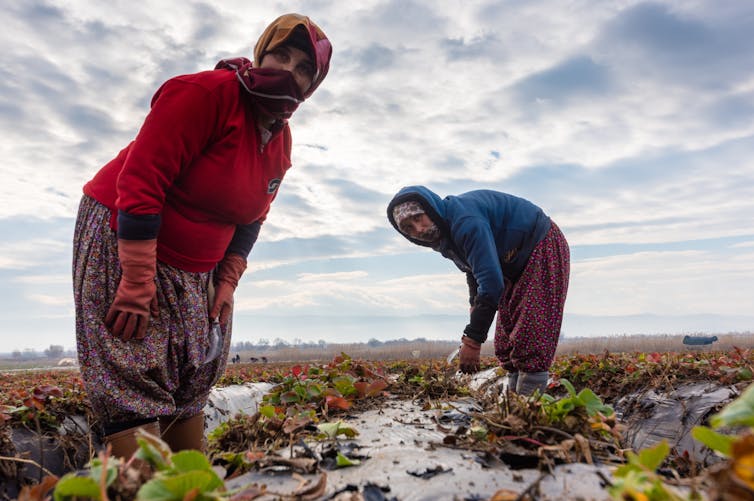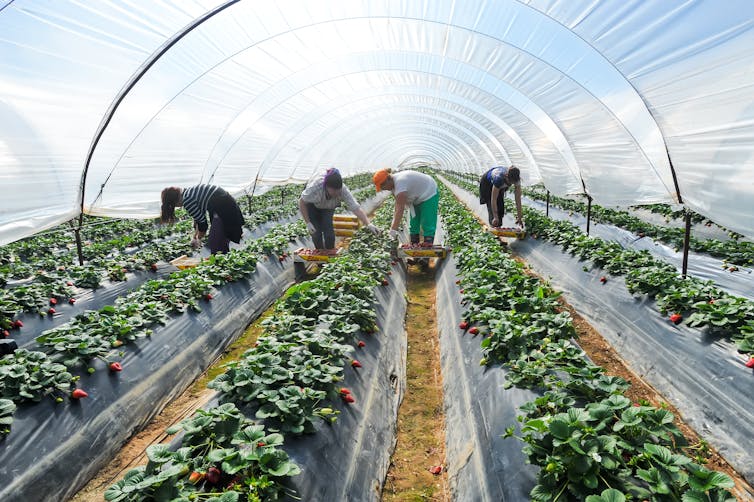Radio 4 interview with Dr Lydia Medland
Following the Home Office revocation of the license of one of the seasonal agricultural worker recruitment operators, Dr Lydia Medland spoke to BBC farming today on 20th February 2023 about the scheme (listen here).
The UK Seasonal Worker visa route allows workers to come from around the world to work for up to six months. There are (or were) seven ‘operators’ of the scheme. These are licenced by the government as the recruiters and sponsors of the workers and are responsible for both enforcement of the scheme requirements, particularly ensuring that workers go home at the end of their stay, and for worker protection.
The UK has had some form of seasonal worker migration scheme since the end of World War II, but the current scheme dates from 2019, when following Brexit, EU workers no longer had access to the UK labour market, and UK fruit and vegetable growers and food producers had to look elsewhere to fill seasonal labour vacancies.
At the end of 2021, Dr Medland and Dr Scott (University of Gloucestershire) wrote a briefing outlining problems in the design of the scheme recommending major changes including a guaranteed minimum income, and for workers to have full access to public services.
In her interview with Radio 4 on 20th February Dr Medland spoke of her concerns that the same companies are responsible for ensuring workers’ return as are responsible for preventing their exploitation, saying that with ‘…outsourcing to for-profit businesses of this dual very important role, it isn’t surprising that something has gone wrong, I think the UK should go back to the drawing board on this scheme.’ Academic research has found (see for example Costello and Freedland, 2014) that where there is an interaction between protection of workers and enforcement of migration law, the enforcement role takes precedence. This leaves workers vulnerable to exploitation because they fear the same organisations and laws that are also meant to protect them.
Radio 4 put these comments to the Home Office who said, ‘The seasonal workers route has been running for three years and each year there have been improvements.’ However, the increasing scrutiny of the scheme by researchers, NGOs and journalists may be having some impact because on 23rd February 2023 Mark Spencer, the Farming Minister announced that Seasonal Workers coming to the UK on the scheme would be guaranteed 32 hours a week of work. This is in response to reports that workers are returning in debt because of there is less work than originally expected.
Whilst the Seasonal Workers visa route is no longer officially a ‘pilot’ it has only been renewed until the end of 2024 and it remains open to significant review. This policy is part of the focus of the ‘Working for 5 a day’ project because seasonal migrant workers are a vital part of the labour force that ensures consumers have access to fruit and vegetables. We will continue to follow this policy development and its changing context.
——————————-
This blog was written by and has been reposted with kind permission from Cabot Institute for the Environment member Dr Lydia Medland. View the original blog.






